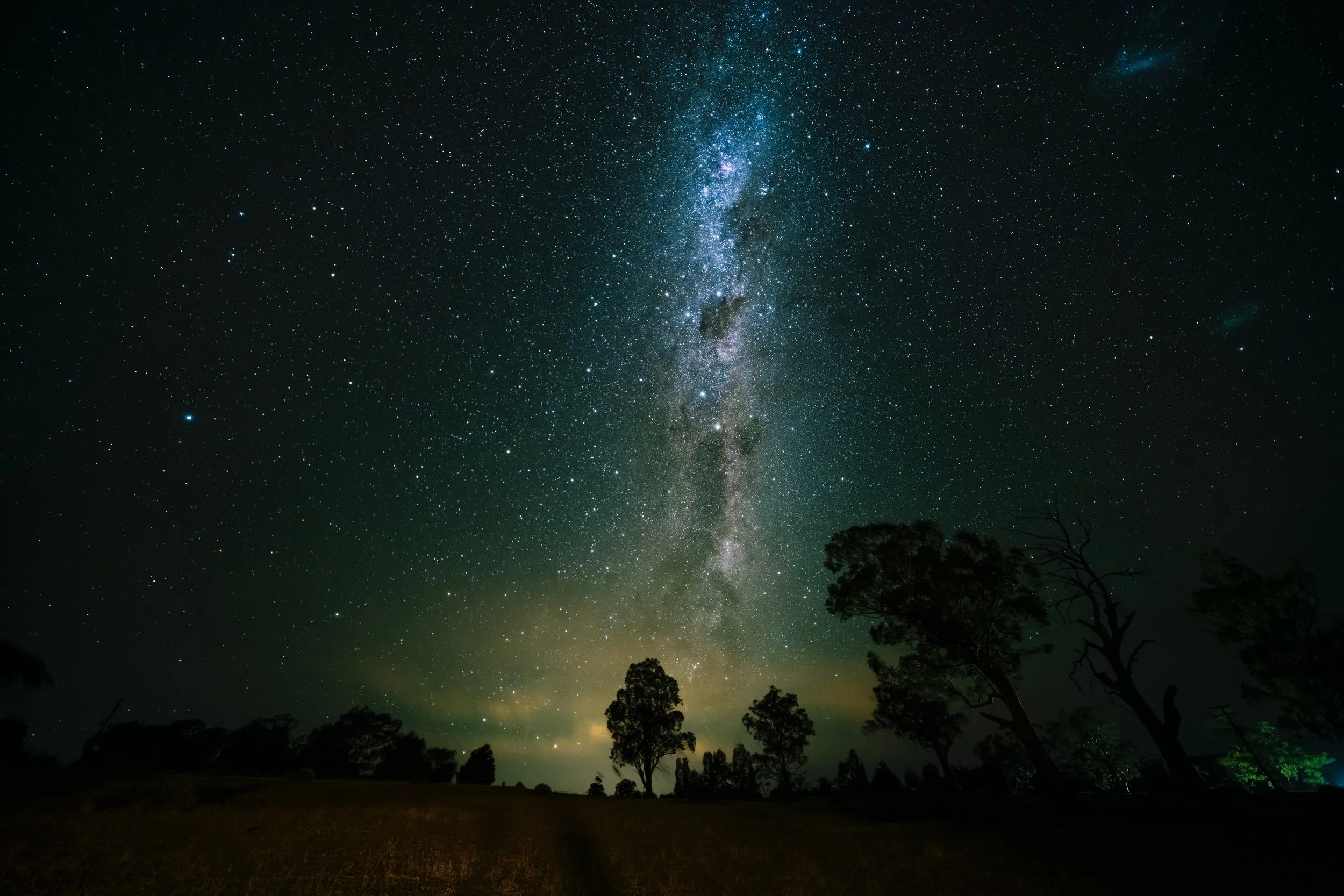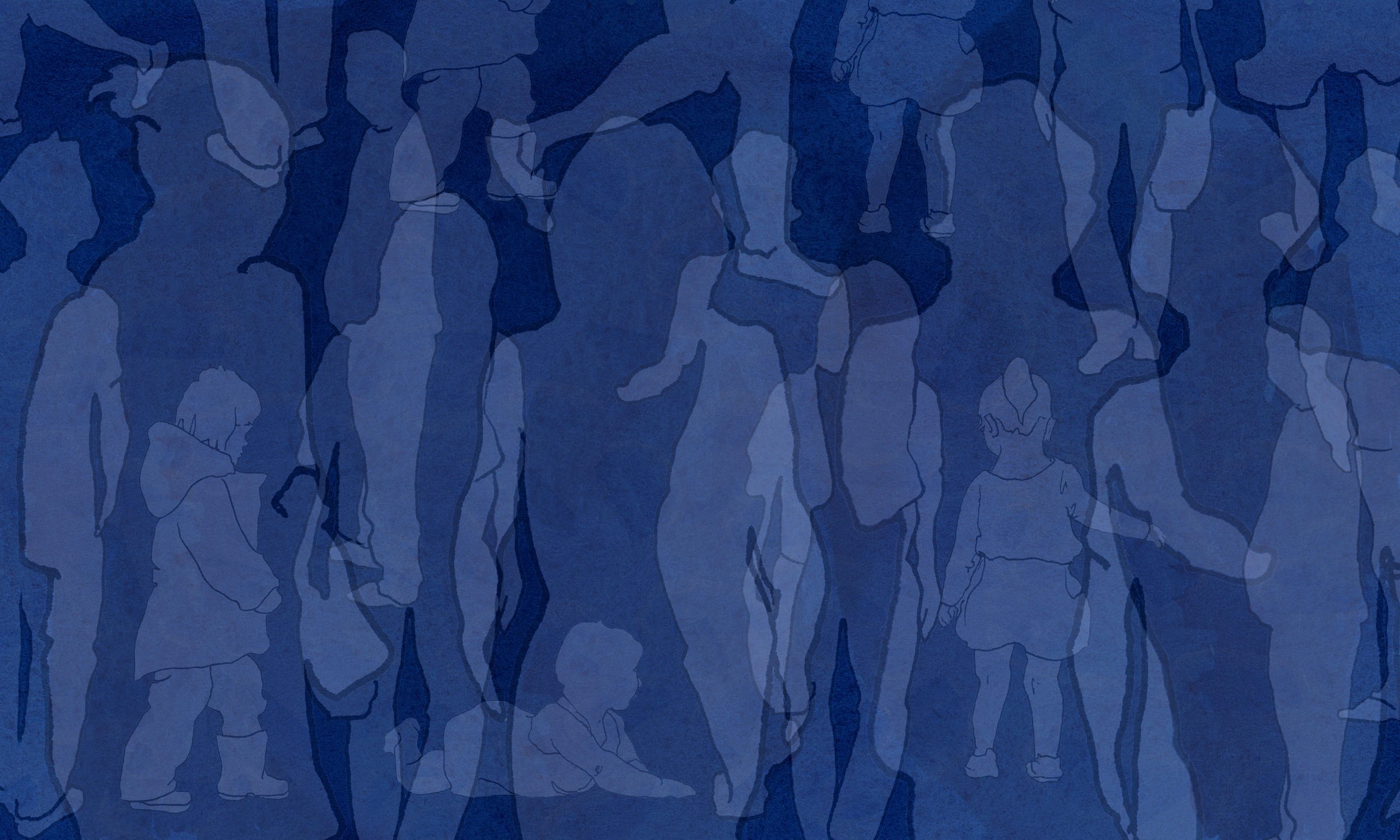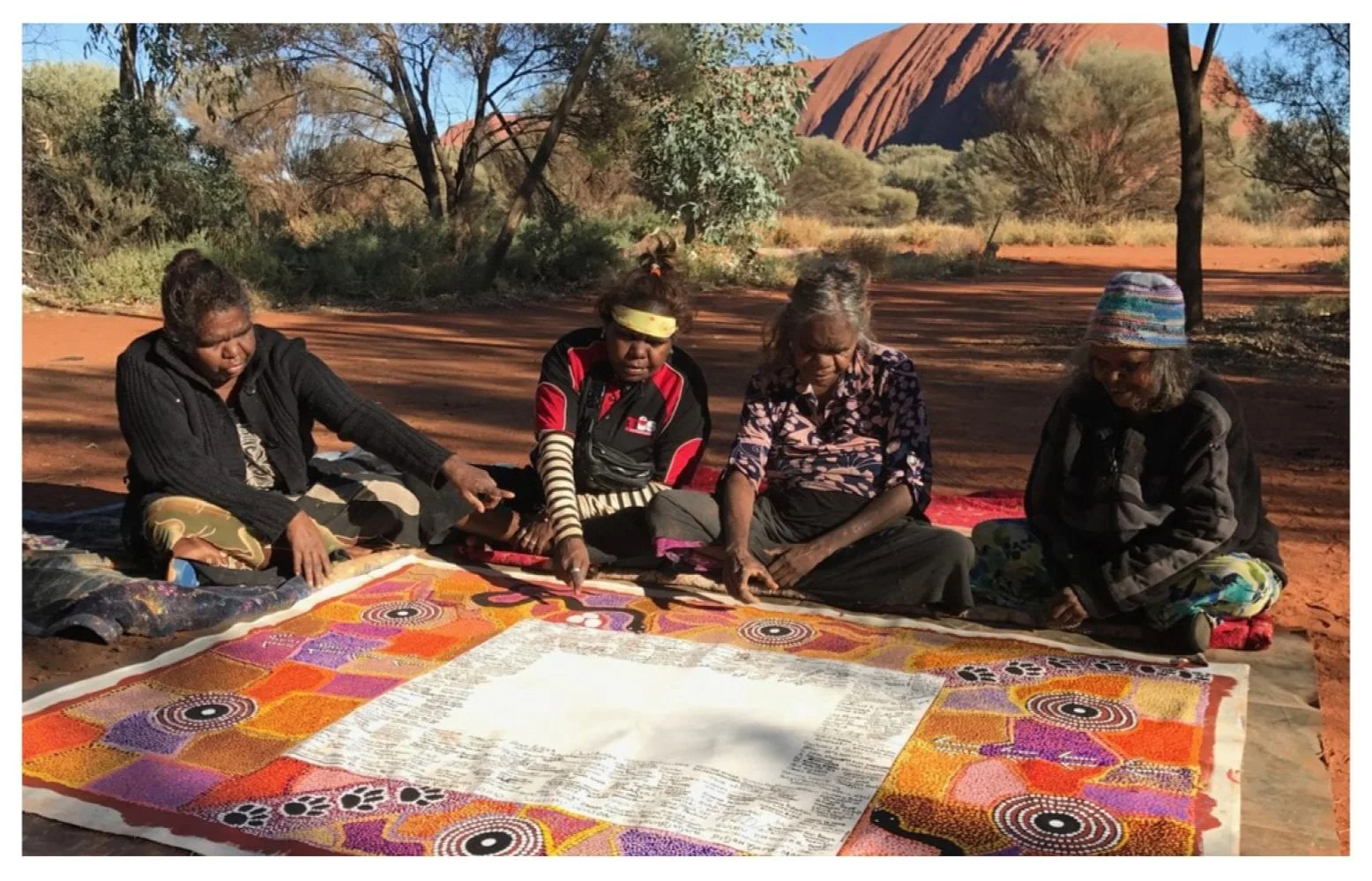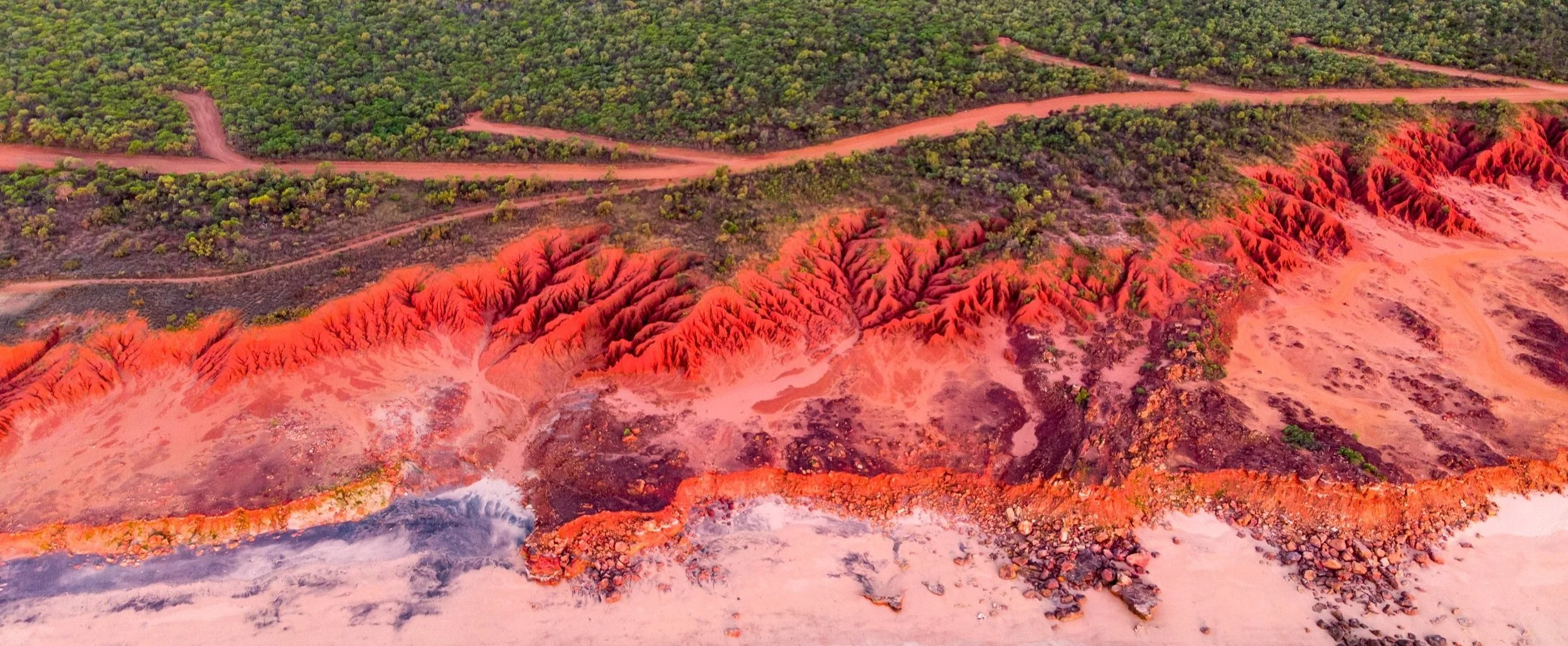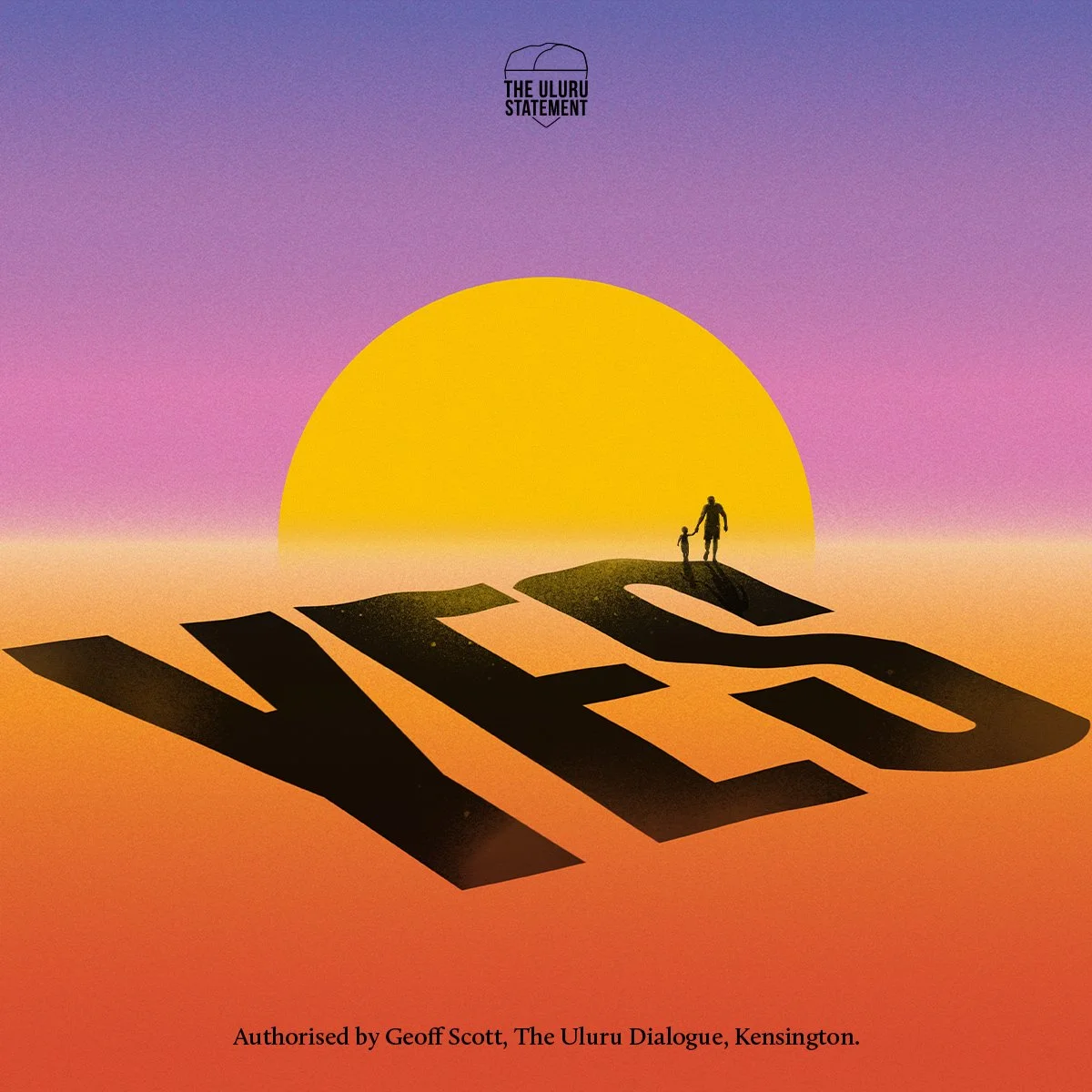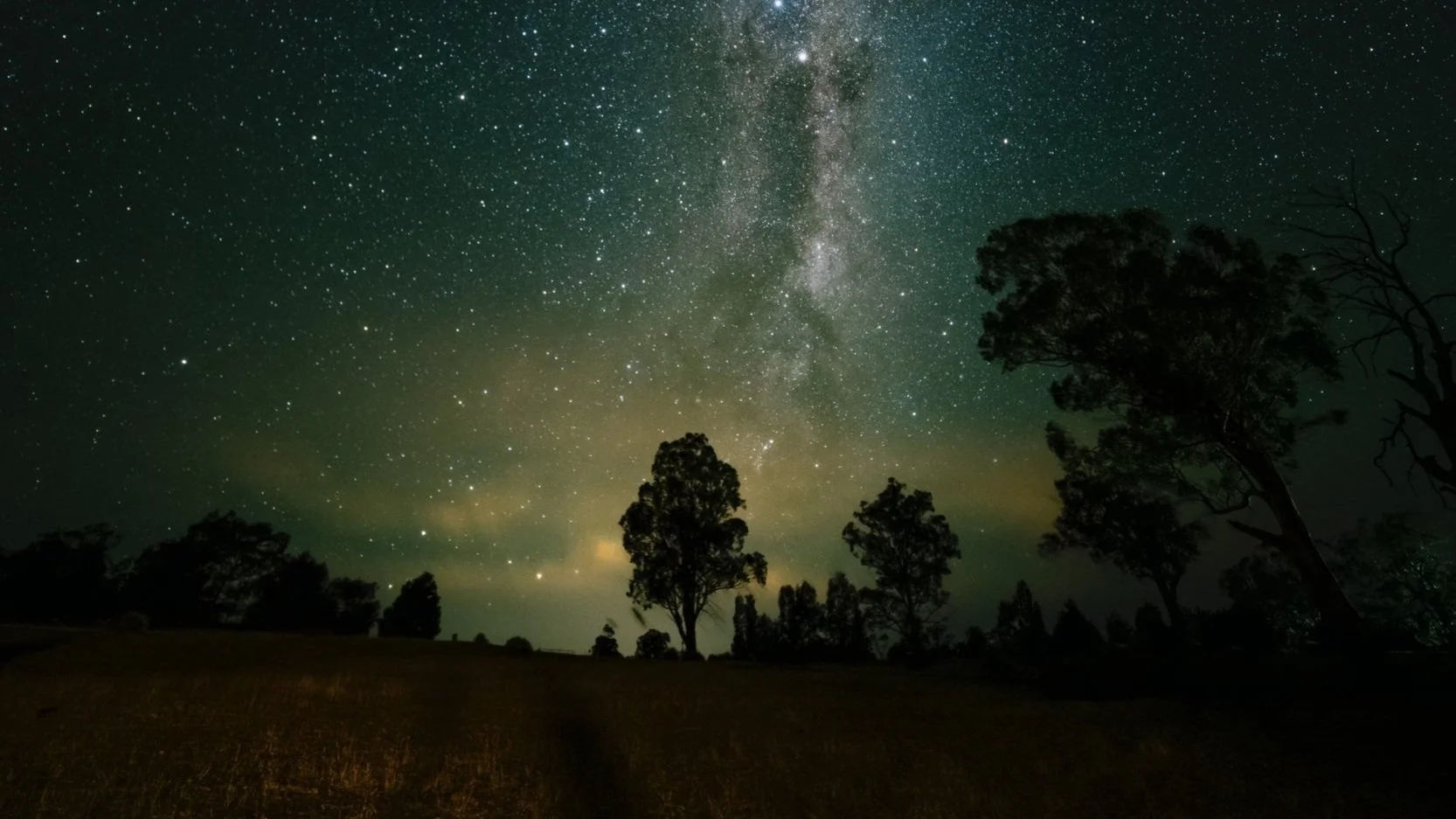Yes to a First People’s heart
Image by Ken Cheung (Unsplash)
What does it mean to live in a country where Aboriginal and Torres Strait Islander peoples and cultures are celebrated at the very heart of what it means to be Australian?
One that celebrates over 60,000 years of history as the world’s oldest continuing civilisation as a matter of pride and learning for all Australians?
One where we are unified and uplifted as a nation as we work together to acknowledge, understand and heal from the past?
Where First Peoples have a rightful place and welcome voice in discussions of importance to this nation, now and always?
Where families and communities are whole and strong, Aboriginal languages are spoken, art and cultures enjoyed, history and stories shared, children and young people flourish?
Where we celebrate genuine leaps forward in life expectancy, family safety, health, education, declining rates of imprisonment and more – knowing that every measure of progress uplifts, heals and frees us all?
Where ultimately, we all are free to be and become whoever we wish to be?
These words come from the voices of many – Indigenous and other Australians – who talked to us about the country of their dreams.
In 2017, we asked people all over the country one question: 'imagine you have woken up in the country of your dreams — what is it like?’ Nothing to sell, no politician to elect and no agenda other than to listen deeply.
Listening to hundreds of people, from many walks of life, we came away understanding that the hopes and dreams we share for our future are staggeringly similar.
This collectively imagined near future is now captured in nine pillars. It comes directly from the voices of the people we spoke with, from the recordings of the interviews, from the reams of butcher’s paper people wrote on and from the afterthoughts they sent in — fired up to talk about the society they want not just for themselves, but for everyone. The very first pillar of that vision is ‘A First People’s Heart’.
Here we are now, in 2023, with a referendum fast approaching on Saturday, 14 October. The referendum asks a specific question: whether to enshrine an Indigenous Voice to Parliament in our nation’s constitution.
If successful, the Voice will operate in “in recognition of Aboriginal and Torres Strait Islander peoples as the First Peoples of Australia” and offer advice to the “Parliament and the Executive Government of the Commonwealth on matters relating to Aboriginal and Torres Strait Islander peoples”. The Guardian offers an excellent overview of the the Voice and how it would work here.
This is a critically important vote, and we will all need to reflect deeply on our decision. For Australia reMADE, when considering this question, we went back to our vision and were guided by its wisdom, which we wanted to offer more broadly here.
These are some of the reasons why we’ll be writing YES on 14th October.
To accept an invitation from the heart
The Voice hasn’t come from politicians. Seven years ago, more than 250 delegates from Aboriginal and Torres Strait Islander groups under all points of the Southern Sky gathered together in Mutitjulu, in the shadow of Uluru, and signed the Uluru Statement from the Heart.
It’s a short but powerful statement, which asserts that Aboriginal and Torres Strait Islander tribes were the first sovereign Nations of the Australian continent and its islands, governing through their own laws and customs, in a sovereignty which was never ceded or severed, now co-existing with the sovereignty of the Crown.
“How could it be otherwise? That people possessed a land for sixty millennia and this sacred link disappears from the world in merely the last two hundred years?”
It speaks to the “torment of our powerlessness” and its effects. And with tremendous generosity of spirit, it offers a way forward:
“We seek constitutional reforms to empower our people and take a rightful place in our own country. When we have power over our destiny our children will flourish. They will walk in two worlds and their culture will be a gift to their country.
We call for the establishment of a First Nations Voice enshrined in the Constitution. ”
It is a generous invitation to offer, and a powerful invitation to accept.
To tell the truth better
It’s time to tell the truth in our Constitution.
To date, we have altered our Constitution eight times previously, including establishing the basis of a national social security system, and allowing the Commonwealth to enact laws for Aboriginal people and count them in the census. If this referendum succeeds, our Constitution will recognise Aboriginal and Torres Strait Islander Peoples as the First Peoples of Australia – moving us from symbolic to practical recognition by enshrining a First Nations Voice to Parliament.
This recognition builds on the historic Mabo case, which argued successfully that British explorer Captain Cook’s declaration of the land as ‘terra nullius’, or belonging to no one, was simply untrue. It was wrong. The consequent colonial ‘settlement’ was, in fact, an invasion. Diseases were spread, massacres and wars waged, and Aboriginal and Torres Strait Islander peoples forcibly removed from their lands.
We can recognise the truth, now, in our nation’s blueprint; and that truth can set us free.
Having courageously broken the silence about the history and impact of colonisation, we now walk together – listening and learning from one another.
To honour the First Peoples and cultures of this country
The rich cultures of this nation’s First Peoples live on today as the oldest continuing civilisation on Earth. A civilisation that can still be seen, honoured and celebrated every day in the language, art, culture and care for Country and community.
It’s an incredible part of our human story, and one that we should honour in the document that states who we are as a country and a people. A Voice to Parliament enshrined in our Constitution is a gift: a chance to honour this history and culture, every day.
60,000 years as the oldest continuing civilisation with knowledge, experience and connection to the land is a matter of pride and learning for all Australians.
To listen to First Peoples about how to heal the harm
Following the acts of invasion, colonial governments continued to make decisions that sought to control and subjugate First Peoples. Perhaps most heinously in our modern history, Stolen Generations of children were kidnapped from their families to be adopted out or raised in institutions as recently as 1970, for no other reason than to make them ‘more white’.
“The 1997 Bringing Them Home report…found that between 1 in 10 and 3 in 10 children were forcibly removed in the years between 1910 and 1970 (removal practices began as early as the mid-1800s).
The Western Australian and Queensland Governments have confirmed that during that period, all Aboriginal and Torres Strait Islander families in their States were affected by the forced removal of children.”
The impacts of generations of trauma since invasion still mark the lives of First Peoples today. We have created a gap which isn’t closing on key areas such as health and life expectancy, education, employment, and more. First Peoples live, on average, eight years less, are twice as likely to commit suicide and have child mortality rate of nearly twice that of other Australians. For decades, the Australian Government has made decisions on behalf of Aboriginal and Torres Strait Islander people, trying to close these gaps. It hasn’t worked.
Where Aboriginal and Torres Strait Islander people have been listened to, we’ve seen health, education, justice outcomes and land management improve for communities. From Norway to New Zealand, evidence is clear that listening to First Peoples has led to more effective policy. For our neighbours in Aotearoa/New Zealand, it led to a Treaty settlement, Māori became one of the official languages of the country and leaders established the Māori Health Authority.
Self-determination drives sustained, long-term transformational change, with First Peoples' full control over decisions impacting lives and communities. Liberated from the shackles of discrimination, First Peoples are equal to anybody else in this country. We all are free to be and become whoever we wish to be.
To protect our collective future
Party politics is set up to be divisive; the Voice is not. The problem with merely creating legislation to set up an Indigenous advisory body, instead of a referendum, is that it’s been tried before, and each time a new government does away with it.
From the Uluru Statement FAQs:
“Since 1967 federal governments have required a mechanism like a voice to support its work in the Indigenous policy space. The government needs to know who to talk to on issues that affect First Nations people. Each of the five previous mechanisms which have been set up by parliamentary processes for this purpose have been abolished by successive governments cancelling programs, policies and investment with the stroke of a pen. This chopping and changing according to election cycles has contributed to the ongoing disadvantage experienced by many First Nations people.”
As advocate Thomas Mayo told us when we spoke to him, the Constitution is the rule book of our nation, setting up how the country is run. Enshrining an Aboriginal and Torres Strait Islander Voice here protects it from becoming just another political football, to be battered about and trashed at the whim of any sitting government.
For those wondering how it would be structured and work in practice, the Guardian piece referenced earlier gives a detailed breakdown:
The referendum working group advising the government says the design of the voice will be guided by the following principles:
It will provide independent advice to parliament and government.
It will be chosen by First Nations people based on the wishes of local communities.
It will be representative of Aboriginal and Torres Strait Islander communities.
It will be empowering, community-led, inclusive, respectful, culturally informed and gender balanced. It will also include youth.
It will be accountable and transparent.
The voice will work alongside existing organisations and traditional structures.
The Calma-Langton co-design report recommended the national voice have 24 members, with gender balance structurally guaranteed.
The base model proposes two members from each state, the Northern Territory, ACT and Torres Strait. A further five members would represent remote areas due to their unique needs – one member each from the Northern Territory, Western Australia, Queensland, South Australia and New South Wales. An additional member would represent the significant population of Torres Strait Islanders living on the mainland.
Members would serve four-year terms, with half the membership determined every two years. There would be a limit of two consecutive terms for each member. Two co-chairs of a different gender to one another would be selected by the members of the voice every two years. The Calma-Langton model proposed a national voice with two permanent advisory groups – one on youth and one on disability – and a small ethics council to advise on probity and governance.
– Professor Megan Davis, Cobble Cobble woman of the Barunggam Nation and a renowned constitutional lawyer and public law expert, quoted in The Guardian.
The Voice has supporters from all parties and sides of politics, and if successful, will be carried forward by a bipartisan committee because ultimately, it’s not a matter of left vs right. This is about Aboriginal and Torres Strait Islander people’s lives and human rights – rights to health, education, housing, employment and justice – that can flourish when people are truly listened to and their input respected.
The Voice opens a new door of possibility, one that says to the First Peoples of these lands and waters:
Image from The Uluru Statement of the Heart supporter kit.
You are seen. You are valued.
You are not going to be merely “acknowledged” in Australia’s opening ceremonies and community gatherings, but listened to and heard.
This is what so many of you have asked for. While we as Australians may want many other things as well (Treaty, Truth), and while it may not be fair that so many others who are not Indigenous get to decide this question alongside you – as a country we hear your call, and together we will respond.
We’re being asked to vote in this referendum because the Government can’t alter the Constitution without us. Every votes counts, with a majority overall and a majority of states needed to make the change we need happen.
The future of Australia is truly in our hands. Together, we can walk into a new day for everyone in this country, with open hands to a First People’s heart. As the ad says, yes makes it possible.
First Peoples have a rightful place and welcome voice in discussions of importance to this nation, now and always.
We invite you to join us, as we write “Yes” to a First People’s heart on October 14.
You can show your support by
talking to those around you, writing yes on your hand and sharing the image with your reasons on social media, hosting a yard sign, handing out flyers in your local community, and pledging your vote.
For more information and good resources on the Voice, check out:
The Uluru Statement from the Heart’s website, Facebook, Instagram, X and Tik Tok
Yes23’s website, Instagram, Facebook, X, LinkedIn and Tik Tok
The Guardian’s explainer of the Voice
Fact checking of the Yes and No Pamphlets in the Conversation
Indigenous advocate Thomas Mayo on the reMAKERS podcast
Authorised by L Tarrant, Australia reMADE, Hobart
ABOUT AUSTRALIA REMADE
Australia reMADE supports ambitious, collaborative, and transformative change-makers to reMAKE more of the world we want. We are independent, not-for-profit and here for anyone who aligns with our vision and values.

